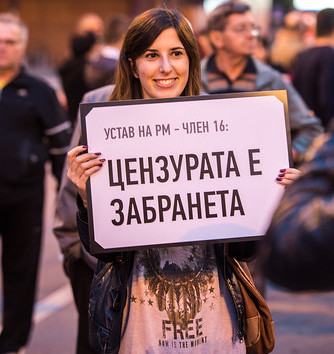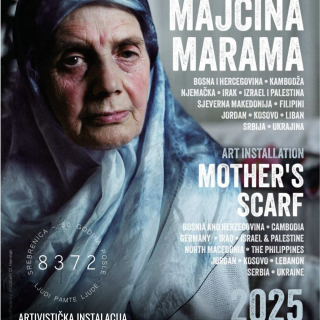The world is experiencing a pandemic that was caused by the new Covid-19 virus, also known as coronavirus. From the city of Wuhan in China, the virus has spread rapidly and unexpectedly around the world. For half a year now, the world has been counting confirmed positive cases every day. The countries are ranked by the number of infected, healed, and deceased. There are countless of unemployed people, economies are declining, the poverty is rising.
But at the same time with the coronavirus, another pandemic is happening in the world. Pandemic of fake news, misinformation and manipulations. As the virus was spreading and the number of infected people increased, the conspiracy theories and the fake news were at rise.
So, you may have read somewhere that the virus was invented and at the same time that it doesn’t exist, that Bill Gates invented the coronavirus in order to be able to chip and monitor the world’s population through a vaccine. You may have heard that the 5G network causes and spreads the coronavirus. You have also come across information that the Chinese created the virus in a laboratory to harm the United States of America. That is, the Americans created the virus to harm China. Contradictory and speculative, but it attracts attention especially on social media.
You have also read about various ways and techniques on how to protect yourself and not get infected with the virus and how to cure it if you already have it. It was recommended drinking alcohol, eating large amounts of garlic, hot and spicy food. Various rinses and inhalations were suggested, as well as long-term sun exposure and ultraviolet radiation. There have been reports of flies and mosquitoes transmitting the virus, as well as pets so some people decided to leave their pets out of fear. Of course, none of this has been medically proven. Some of the recommendations are harmless, but some can seriously damage the health of someone who not only read but also believed in what was written.
Officials are spreading fake news
It is devastating that some of this misinformation came personally from some institutions and even from officials. US President Donald Trump has said research needs to be done for the treatment of patients with Covid-19 by injecting disinfectants into the body to kill the virus or “inserting” UV rays into the body to eliminate the virus.
Some African leaders have recommended drinking herbal teas, cognac and going to church as a way to fight the virus.
Fake news, except for misinforming the public, can also be very dangerous to human health. So, despite appeals from doctors that Trump’s methods could cause enormous damage to the body and cause health problems, some people obeyed their president. In late April, two men in Georgia and one man in Kansas drank cleaning products ‘to ward off Covid-19’, after which they were hospitalized.
The World Health Organization (WHO) is fighting the coronavirus on two fronts. The first is directly related to the virus, and the second is the ‘infodemic’ that occurs due to the increased volume of fake news and the spread of misinformation.
In order to accurately inform and, above all, to protect the health of the world’s population, the World Health Organization has created a special section on its website where they debunk the fake news related to the virus with scientific facts. That is done in an easy and understandable way, in order for everyone to understand.
Macedonian troll farms
And again, as in many other situations, the crisis is proving to be a fertile ground for fake news, and social networks are the tools through which that fake news spreads massively and instantly to the eyes and ears of many people.
The drama to be even bigger, few days ago the social network Facebook announced that troll farms from North Macedonia and the Philippines pushed coronavirus disinformation on Facebook from the site Natural News. After that Natural News official Facebook page was banned from Facebook for publishing misinformation and conspiracy theories. Once more, North Macedonia is one of the centers from where fake news is spread, just like during the US presidential election in 2016 when the town Veles became the world capital of fake news.
Media literacy as the only solution
Both globally and locally, it is becoming increasingly clear that people tend to believe in untruths. Thus according to a survey conducted by MCIC, 10% of the population in North Macedonia believes that the virus does not exist, and 37% believe that it was deliberately taken out from the laboratory. These devastating data shows that the level of media literacy among citizens is very low and they believe everything they read on social media and portals without asking themselves whether there the information is accurate or if there is at least minimal logic in what is published.
The poor media literacy of the population makes it vulnerable to organized dissemination of misinformation and manipulation from various centers.
Fast and timely information is needed to comprehensively educate and prepare the public for the crisis facing the world that is still new and unknown. But misinformation and speculation can cause unnecessary panic and stress, inadequate care for one’s own health and can also encourage risky behavior. This can contribute to the spread of the epidemic and to an increased number of patients and life-threatening situations.
The official sources of information for the coronavirus are the World Health Organization (WHO) as a global source, and locally in North Macedonia the official data on the epidemic comes primarily from the Ministry of Health and the Institute of Public Health, the Ministry of Interior, the government and municipalities.
Humanity urgently needs a vaccine for coronavirus that will stop the epidemic, save lives, and will bring people’s lives back to normal. But unfortunately there is no vaccine against fake news. The only medication against disinformation is the increase in the media literacy of the public. The habit of checking the truthfulness and reliability of information should be strengthened just like the habit of regular and frequent hand washing.
Simona Atanasova is a graduated journalist with years of work experience in media and NGO organizations. As a journalist she worked in the daily newspaper “Nova Makedonija” and in the news agency Meta. She writes educational articles for media literacy and reviews for Crithink and the Media Fact Checking Service. Currently, she works as a communication officer at the Institute for Democracy “Societas Civilis”.




